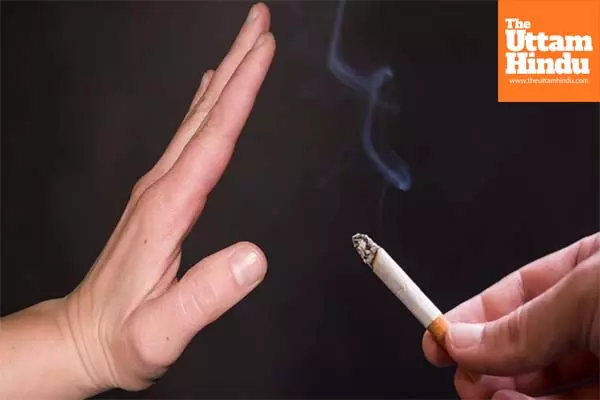
65 pc Indian doctors call for safer tobacco alternatives to save lives

New Delhi (The Uttam Hindu): Amidst India's escalating tobacco epidemic, where four out of 10 households grapple with smoking addiction, a new report on Friday revealed that 65 per cent of healthcare professionals in the country call for safer novel tobacco alternatives to save lives. The report from the Doctors Against Addiction (DAAD) survey, in collaboration with Saizen Global Insights and Consulting, revealed a pivotal shift in the perspectives of healthcare professionals with 65 per cent of doctors supporting integrating safer cessation alternatives, such as nicotine replacement therapies and heat-not-burn products, into smoking cessation efforts. They emphasised the need for further efficacy research of these alternatives.
The finding marks a significant moment in India’s ongoing battle against tobacco addiction, which contributes to over 930,000 deaths annually -- equating to more than 2,500 lives lost every day due to smoking-related diseases. “Tobacco addiction is India’s most pressing public health challenge. To combat this, we must prioritise scientifically permitted alternatives for tobacco cessation. As healthcare professionals, guiding patients toward safer options is crucial to saving lives and mitigating tobacco’s devastating impact,” said Dr Mohsin Wali, Padma Shri Awardee and Senior Consultant at Sir Ganga Ram Hospital.
“India’s tobacco crisis is a national emergency, requiring immediate intervention. While innovative cessation technologies have potential, concerns remain over the lack of structured support for transitioning to novel safer alternatives. Urgent statutory recommendations of scientifically-proven cessation solutions,” added Dr Manish Sharma, Chief Coordinator of DAAD. In the survey involving 300 healthcare professionals, over 70 per cent of doctors cited addiction severity and low motivation, and 60 per cent pointed to a lack of cessation resources as key barriers to quitting. It revealed that smoking cessation in India is hindered by inadequate follow-up care and poor implementation of evidence-based methods. Only 7.4 per cent of healthcare providers consistently offer cessation advice, and just 56.4 per cent arrange follow-up consultations, highlighting significant gaps.
“Tobacco addiction needs multifaceted solutions. The rise of safer novel alternative products for cessation provides an opportunity to rethink our strategies. By integrating these cessation strategies and enhancing public knowledge about this, and around digital platforms and resources, we can drastically improve our intervention outcomes,” Dr Pawan Gupta, Senior Consultant in Pulmonary Medicine at BLK-MAX Super Specialty Hospital, New Delhi. The findings highlight a critical need for policy reform, increased public awareness, the integration of modern technologies, and safer novel alternatives to support those struggling with addiction.

